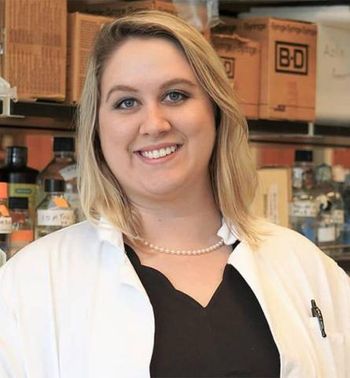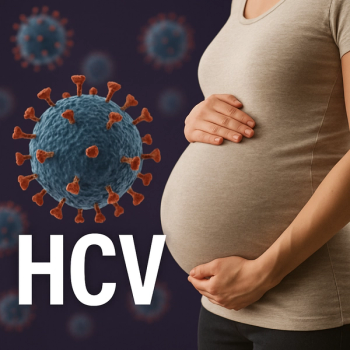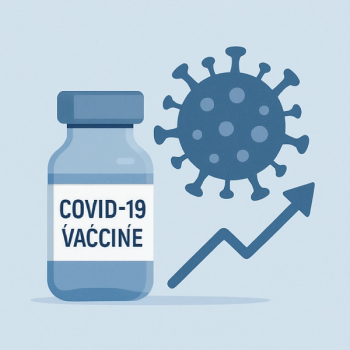
Sharon Nachman, MD, breaks down the latest on Stratus and Nimbus variants and what families should consider as schools resume.

Sharon Nachman, MD, breaks down the latest on Stratus and Nimbus variants and what families should consider as schools resume.

Emily Olsen, PhD, offers some insights on this underdiagnosed infection, including describing antimicrobial studies, particularly in biofilm and intracellular environments. Her findings look to create a standardized approach for treating all forms of the different presentations of bartonellosis.

Vir initiates phase 2b head-to-head trial of novel combination therapy vs bulevirtide.

Pediatric infectious disease expert Sharon Nachman, MD, explains how to identify symptoms, assess travel risk, and prevent mosquito-borne illness in kids.

This week, from synthetic biosecurity concerns to gaps in maternal hepatitis C screening, rising COVID cases, antimicrobial resistance, fast-tracked CF therapies, and more.

After a three-month review, the FDA and EMA have cleared continued use of IXCHIQ in adults 60+, adding new safety warnings for elderly individuals with chronic conditions.

CDC found 6.9% of those testing positive for Candida auris colonization on skin develop invasive infection, and calls for better surveillance and prevention.

Cost-effectiveness of COVID-19 vaccination in older adults amid rising US cases and limited booster access.

China's largest recorded chikungunya outbreak prompts strict mosquito control and mandatory hospitalization in Foshan.

Despite updated guidelines for universal hepatitis C virus screening in pregnancy, testing rates remain well below targets, missing chances to prevent perinatal transmission.

Results from a recent study comparing ceftolozane-tazobactam and ceftazidime-avibactam for difficult-to-treat Pseudomonas aeruginosa infections found no statistically significant difference in resistance emergence but a surprising numerical trend favoring ceftazidime-avibactam. Pranita Tamma, MD, MHS, continues her conversation about this topic.

Low vaccine uptake, immunity gaps, and new antiviral data raise alarms ahead of a potential late-summer surge.

Clarametyx Biosciences said its investigational antibody therapy, CMTX-101, which is in a phase 1b/2a study, remains on track for full trial enrollment by the end of 2025.

Study reveals notable sex-based disparities in liver complication risk among adults with cirrhosis, particularly in nonviral cases.

Tennessee, New Jersey, North Carolina, and South Carolina were evaluated by Alexandra Kurutz, MPH, and Simone Godwin, DVM, MPH, MS, CIC, in a review of C auris containment efforts in dialysis facilities using standard IPC measures.

Sara Keely Schultz, MD, offers some insights on the Temple infectious disease fellowship and what sets the program apart from others.

In part 2 of the conversation, David Relman, MD, discusses the importance of the research and medical communities in shaping future work in this area as well as the potential severe consequences of Mirror Life in a worse case scenario.

David Relman, MD, discusses the theoretical issues of "mirror life," how the scientific community could potentially research natural chirality synthetic life, and how mirror molecules may be a way to extract beneficial research from the concept.

This week, individualized training in high-volume transplant care, reassuring data on aluminum vaccine safety, smarter antibiotic stewardship, and more.

Temple first year fellow, Jesse Veisblatt MD, gives some insights on infectious disease consultations and how the unique cases and wide range of pathologies is interesting and keeps the job exciting.

In a continuing trend from the last several years, a record number of families are opting out of vaccines.

Pranita Tamma, MD, MHS, discusses the motivations comparing ceftolozane-tazobactam and ceftazidime-avibactam and findings of one observational study.

Last month, several food products were recalled across the US following routine inspections and contamination concerns involving Salmonella, Listeria monocytogenes, and Clostridium botulinum.

The study will examine the switch to the combination of tobevibart and elebsiran in patients not achieving undetectable hepatitis D virus RNA despite bulevirtide treatment.

Two deaths and eight infections in Italy highlight the need for enhanced surveillance, proactive vector control, and cross-border collaboration in Europe and beyond.

Heather Clauss, MD, explains why Temple hires many of its fellows into full-time positions, why it is important for young providers to seek out mentors, and some strategies in learning how to navigate careers early-on.

Epidemiologist Anders Peter Hviid leads research reassuring vaccine safety across autoimmune, allergic, and neurodevelopmental disorders.

Study investigators found a therapy designed to treat Celiac disease supported a more rapid return to normal activities for patients with multisystem inflammatory syndrome in children (MIS-C).

Aaron Mishkin, MD, discusses the prolific transplantation department at Temple University and how the infectious disease team, including the fellows, supports these lifesaving procedures.

Vinay Prasad’s, MD, MPH, short tenure marked by tough regulatory decisions and political pushback; the Trump administration has not yet named a successor for the CBER director role.